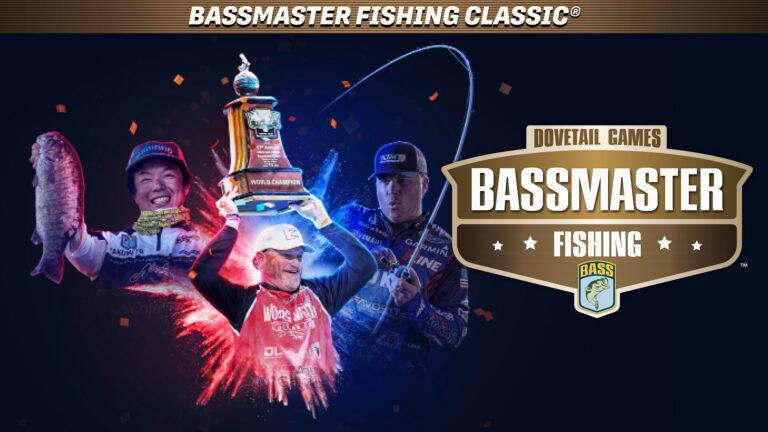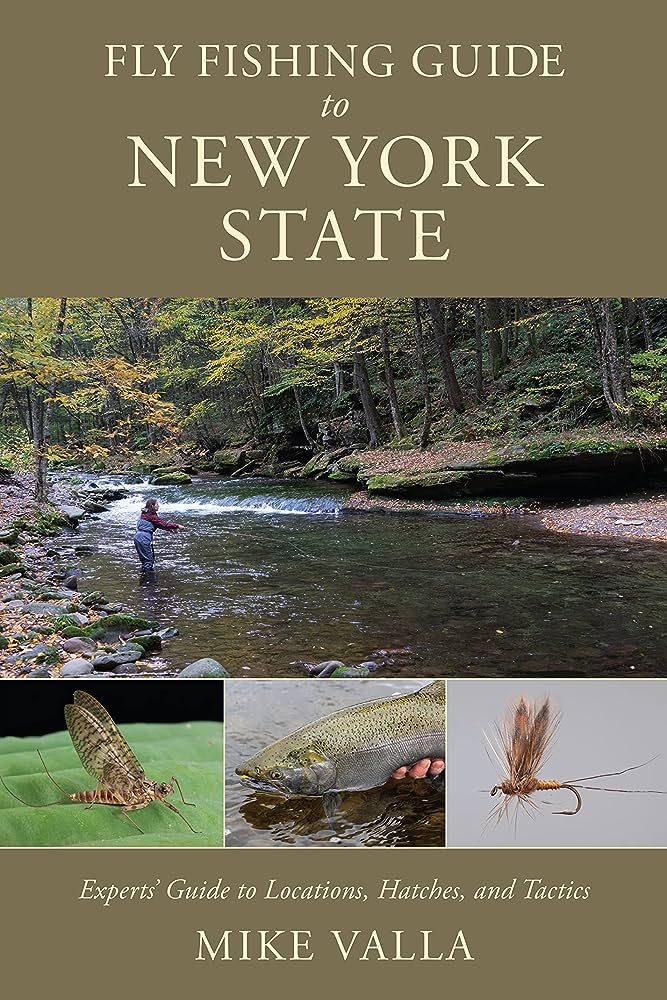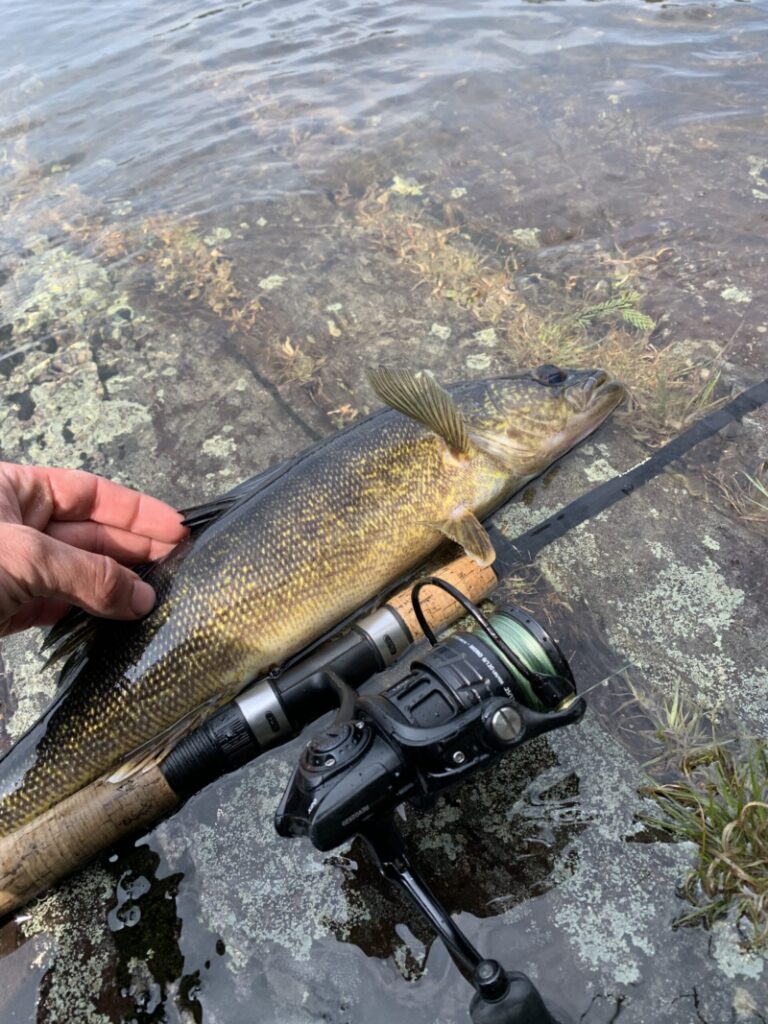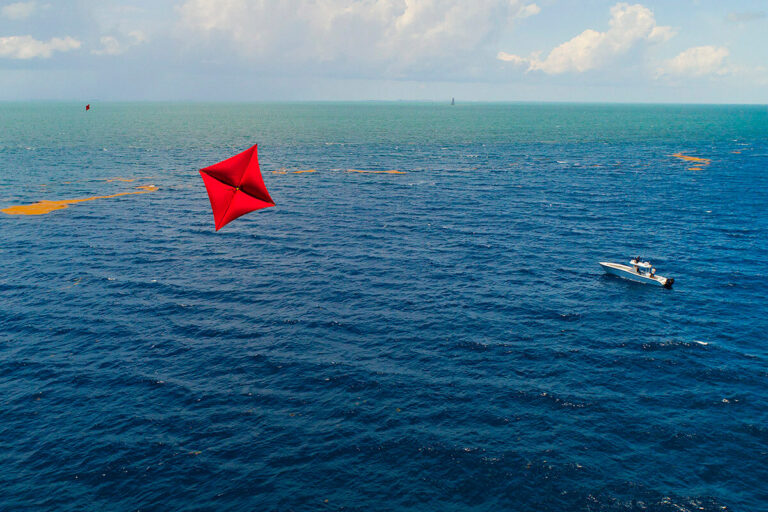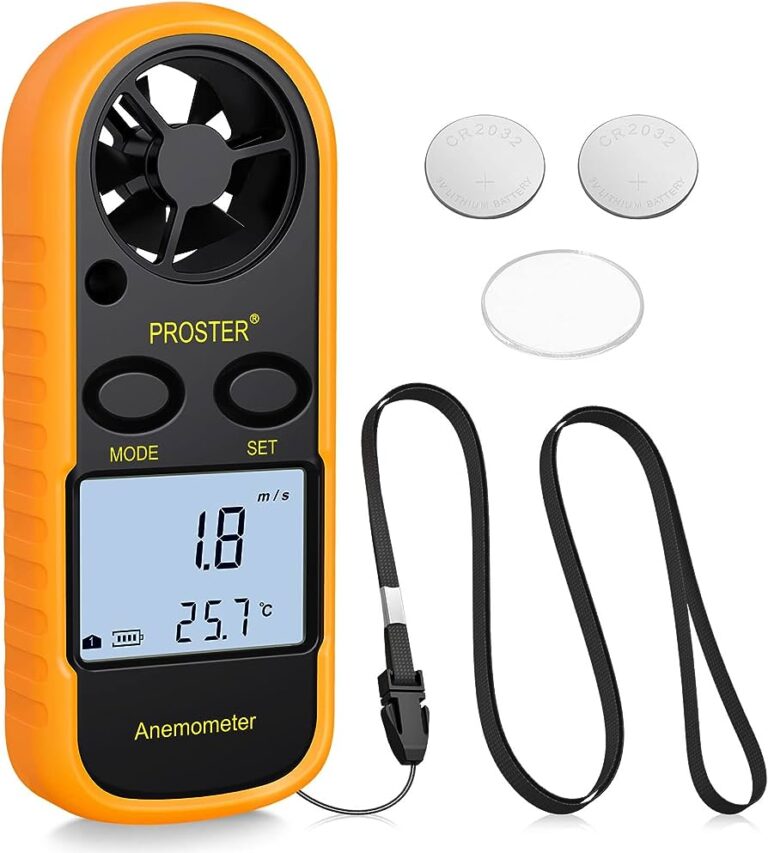To become a fishing guide in texas, you need to fulfill certain requirements, such as obtaining a fishing license, completing a boater education course, and gaining hands-on experience through apprenticeships or working with established fishing guide services. Once you have met these requirements, you can start building your knowledge of local fishing spots, obtaining the necessary equipment, networking with potential clients, and promoting your services to establish yourself as a fishing guide in texas.
With dedication and passion for fishing, you can embark on a rewarding career as a fishing guide in the lone star state.
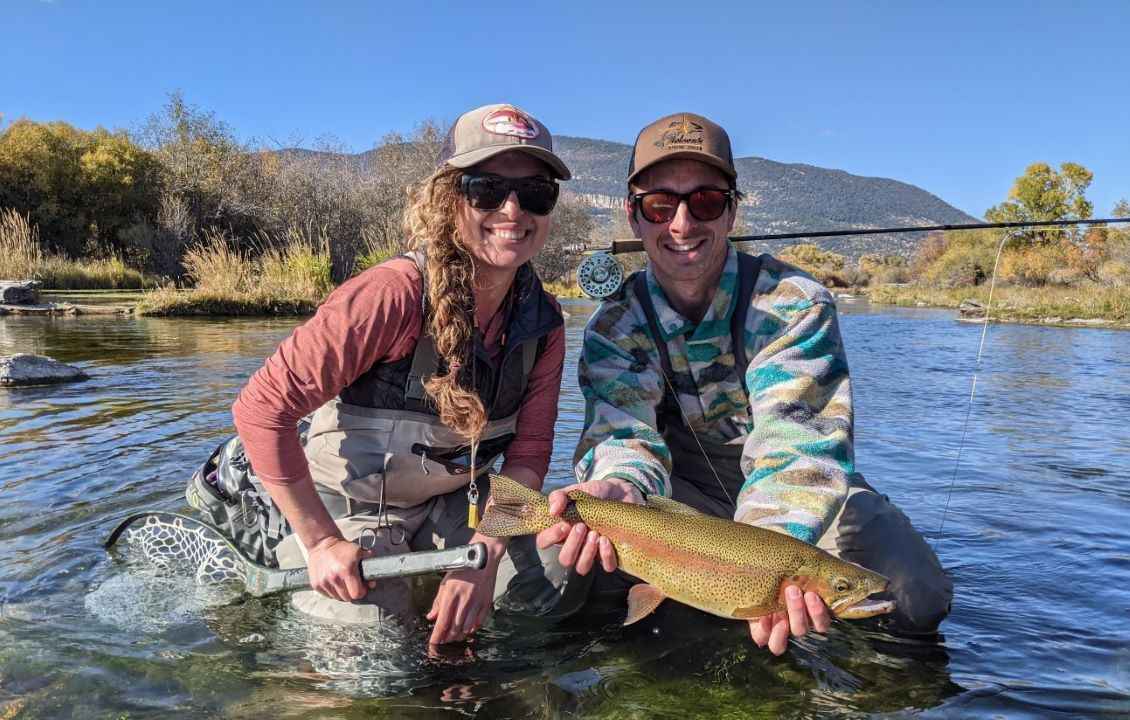
Credit: guidesly.com
The Importance Of Skill Development
Enhancing Your Fishing Skills To Provide An Unforgettable Experience
Are you passionate about fishing and dreaming of becoming a fishing guide in texas? Being a fishing guide is not just about taking people out on the water and catching fish. It’s about providing an unforgettable experience for your clients, and to do that, you need to develop and enhance your fishing skills.
Here, we will discuss the importance of skill development and how it can make you a top-notch fishing guide in texas.
Understanding The Different Fish Species In Texas Waters
To be a successful fishing guide in texas, it is crucial to have a deep understanding of the different fish species that can be found in its waters. Here are some key points to consider:
- Identify texas fish species: Texas is home to a wide variety of fish species, including largemouth bass, catfish, redfish, trout, and many more. Familiarize yourself with these fish species and their habitats to provide targeted and personalized guidance to your clients.
- Study their behavior: Each fish species has its own unique behavior patterns. Observe and learn about their feeding habits, preferred habitats, and migration patterns. This knowledge will help you locate fish more effectively and increase your clients’ chances of having a successful fishing experience.
- Know the regulations: Being aware of the fishing regulations and limits in texas is essential. Stay updated on any changes in fishing rules and ensure that you and your clients adhere to them. This not only promotes responsible fishing but also avoids any legal issues.
- Learn the best techniques: Different fish species require different fishing techniques. Master a variety of fishing methods such as baitcasting, trolling, and fly fishing. This versatility will enable you to adapt to different fishing conditions and cater to the preferences of your clients.
- Stay updated: Fishing is an ever-evolving activity, and there is always something new to learn. Stay updated on the latest fishing techniques, tackle, and equipment. Attend workshops, seminars, and fishing expos to network with other fishing enthusiasts and expand your knowledge base.
By enhancing your fishing skills and understanding the different fish species in texas waters, you can ensure that your clients have an unforgettable fishing experience. Continuously honing your skills and knowledge will not only make you a sought-after fishing guide, but it will also contribute to the conservation of texas’s vibrant aquatic ecosystems.
So, get out there, explore, and never stop learning!
Mastering Fishing Techniques
Whether you’re a seasoned angler or just starting out, mastering fishing techniques is a crucial step towards becoming a successful fishing guide in texas. Texas offers a diverse range of fishing opportunities, from freshwater lakes to coastal waters, which means that having a solid foundation in various fishing techniques is essential.
In this section, we will explore some key aspects to consider when it comes to mastering fishing techniques.
Learning The Art Of Casting And Reeling
Mastering the art of casting and reeling is fundamental for any fishing guide. Here are some key points to keep in mind:
- Practice makes perfect: Spend time honing your casting skills in different types of water bodies to improve accuracy and distance.
- Choose the right equipment: Ensure you have the right fishing rod and reel combo for the type of fishing you plan to do.
- The proper grip: Hold the rod firmly but not too tight, allowing for smooth and controlled casting and reeling motions.
- Casting techniques: Learn different casting techniques like overhead casting, side casting, and flipping to adapt to various fishing scenarios.
- Reeling techniques: Understand different reeling techniques such as steady retrieve, stop-and-go retrieve, and jigging to entice the fish.
- Use your body: Engage your whole body while casting and reeling, utilizing your arms, shoulders, and hips for fluid and efficient movements.
Exploring Various Bait And Lure Options For Different Conditions
Understanding the different bait and lure options available is crucial in enticing different species of fish. Here are some key points:
- Live bait: Learn how to use live bait such as worms, shrimps, and minnows effectively, as they can be irresistible to many predatory fish.
- Artificial lures: Experiment with different types of artificial lures like crankbaits, spinnerbaits, and soft plastics to imitate various prey species.
- Match the hatch: Observe the natural food sources available to the fish in the specific fishing location and select baits or lures that closely resemble them.
- Adjust to conditions: Consider the water clarity, temperature, and weather conditions when choosing bait or lure color, size, and action.
- Be versatile: Have a wide range of bait and lure options in your tackle box to adapt to different fishing scenarios and fish preferences.
Understanding How To Use Depth Finders And Other Fishing Tools Effectively
Fishing tools like depth finders and fish finders can significantly enhance your fishing experience. Here are some key points to remember:
- Learn to interpret depth finders: Understand how to read depth finders to locate underwater structures, drop-offs, and schools of fish.
- Utilize fish finders: Fish finders can help you identify the depth and location of fish, allowing you to target them more effectively.
- Use gps technology: Take advantage of gps-enabled devices to mark productive fishing spots, navigate safely, and return to successful locations.
- Stay up to date with technology: Explore new fishing tools like underwater cameras, temperature sensors, and radar systems to gain a better understanding of fish behavior and underwater conditions.
- Regular maintenance: Ensure your fishing tools are maintained properly to provide accurate readings and avoid any technical difficulties during trips.
Mastering fishing techniques is an ongoing process that requires dedication, practice, and a genuine passion for the sport. By continuously improving your casting and reeling skills, exploring different bait and lure options, and staying updated with fishing tools and technology, you’ll be on your way to becoming a knowledgeable and successful fishing guide in texas.
Now, let’s dive into the next section and explore the importance of understanding fish behavior.
Navigating Texas Fishing Regulations
As an aspiring fishing guide in texas, it’s essential to familiarize yourself with the state’s fishing regulations. Navigating these rules and regulations will ensure that you operate within the law and provide a safe and responsible fishing experience for your clients.
In this section, we will delve into the key aspects of texas fishing regulations, including licenses, catch limits, and size restrictions. Let’s dive in!
Familiarizing Yourself With Texas Fishing Regulations And Licenses
- Texas fishing regulations and licenses are administered by the texas parks and wildlife department (tpwd). It is crucial to understand the various licenses required to operate as a fishing guide in the state. Here are some important points to keep in mind:
- Fishing guide license: As a fishing guide, you will need a valid fishing guide license issued by the tpwd. This license allows you to guide clients on fishing trips and receive compensation for your services.
- Commercial fishing license: In addition to the fishing guide license, you may need a commercial fishing license if you plan to sell the fish caught during your trips. This license is required if you intend to engage in any commercial fishing activities.
- Recreational fishing license: If you plan to engage in recreational fishing during your downtime, you will need a separate recreational fishing license. This license permits you to fish for personal use when you are not guiding clients.
- Ensuring that you have the appropriate licenses will demonstrate your commitment to operating legally and professionally as a fishing guide in texas.
Understanding Catch Limits And Size Restrictions
- Catch limits and size restrictions are put in place to ensure the sustainability of fish populations and protect the balance of the ecosystem. As a fishing guide, it is your responsibility to adhere to these regulations and educate your clients about the importance of conservation. Here’s what you need to know:
- Bag and possession limits: Bag limits specify the maximum number of fish an individual can catch and keep in a single day, while possession limits define the maximum number of fish a person can have in their possession at any given time. These limits vary depending on the species of fish and the location where you are fishing. Familiarize yourself with the specific bag and possession limits for the areas you plan to guide in.
- Size restrictions: Size restrictions indicate the minimum or maximum size of a fish that can be legally harvested. These restrictions are in place to ensure that fish have the opportunity to grow and reproduce before being caught. It is crucial to know the size restrictions for different species of fish in order to comply with the regulations.
- Protected species: Certain species of fish may be protected under texas fishing regulations. This means that they are off-limits for fishing, and it is illegal to target or possess them. Make sure you are aware of the protected species in your area to avoid any unintentional violations.
Remember, staying up to date with any changes to fishing regulations is essential. The tpwd regularly updates the rules, and it’s your responsibility as a fishing guide to be aware of and comply with these changes. By doing so, you’ll ensure a sustainable and enjoyable fishing experience for your clients while contributing to the conservation efforts in texas.
Safety Considerations For Guides
Ensuring The Safety Of Your Clients On The Water
Before embarking on a fishing adventure as a guide, it is essential to prioritize the safety of your clients. Fishing can be an exhilarating experience, but it also comes with its risks. By taking the necessary precautions and being prepared for potential emergencies, you can ensure a safe and enjoyable trip for everyone involved.
Here are some key considerations to keep in mind when it comes to safety as a fishing guide:
- Obtain the necessary certifications and licenses: Before offering your services as a fishing guide in texas, make sure to obtain all the required certifications and licenses. This includes a valid boating license and any other permits or certifications specified by the state. Familiarize yourself with the local rules and regulations to ensure compliance.
- Assess weather conditions: Always stay updated on the weather forecast before heading out on the water. Extreme weather conditions can pose significant risks, so it’s important to reschedule or cancel trips if necessary. Remember, safety should never be compromised for the sake of a fishing adventure.
- Equip your boat with safety gear: Prioritize the safety of your clients by ensuring your boat is properly equipped with essential safety gear. This includes life jackets for everyone on board, a fire extinguisher, distress signals, and navigation lights. Conduct regular maintenance checks on your boat to ensure it is seaworthy and functioning properly.
- Educate your clients: Before setting out for a fishing trip, take the time to educate your clients about basic safety protocols. Provide them with a brief orientation on how to use life jackets, where safety equipment is located, and what to do in case of an emergency. Reinforce the importance of following your instructions during the trip to maintain safety standards.
- Maintain a proper client-to-guide ratio: Keeping a manageable client-to-guide ratio is crucial for maintaining safety standards. Ensure that you can effectively monitor and assist each client on the boat when needed. Overcrowding can increase the chances of accidents or injuries, so it’s essential to prioritize a safe and comfortable experience for everyone.
- Prepare a first aid kit: Accidents can happen, even in the safest of environments. As a fishing guide, it’s your responsibility to be prepared for emergencies by carrying a well-equipped first aid kit on board. Stock it with essential items such as bandages, antiseptic ointment, pain relievers, and any necessary medications for specific medical conditions your clients may have.
- Communicate emergency procedures: In the event of an emergency, clear communication is vital. Establish clear emergency procedures and communicate them to your clients before the trip. Ensure they understand how to use communication devices, such as a marine radio or cellphone, to notify authorities if needed. Rehearsing emergency procedures beforehand can help minimize panic and promote swift action when required.
- Stay vigilant and alert: As a fishing guide, it’s important to remain vigilant and constantly be aware of your surroundings. Pay attention to other boats in the vicinity, potential hazards in the water, and any signs of distress from your clients. Being proactive and responsive to potential safety risks can prevent accidents and ensure a safe outing.
- Continuously update your knowledge: Stay updated on safety guidelines, best practices, and any changes in regulations. Attend workshops and training sessions to enhance your skills and knowledge as a fishing guide. Being well-informed will enable you to provide a safer and more enjoyable experience for your clients.
- Insurance coverage: Lastly, consider obtaining liability insurance to protect yourself and your clients in case of accidents or injuries. Having adequate insurance coverage can provide financial security and peace of mind for both parties.
By prioritizing safety and taking these considerations into account, you can establish yourself as a trusted and responsible fishing guide in texas. Remember, the safety of your clients should always be your top priority for a successful and rewarding fishing experience.
So, prepare yourself, educate your clients, and enjoy the excitement of fishing while keeping everyone safe on the water.
Building A Strong Clientele
If you have dreams of becoming a successful fishing guide in texas, one of the most important aspects of your business will be building a strong clientele. Without a steady stream of clients, your fishing guide service may struggle to thrive.
In this section, we will discuss effective marketing strategies for attracting clients and the importance of building lasting relationships through exceptional customer service.
Effective Marketing Strategies For Attracting Clients:
- Utilize social media platforms: Establish a strong online presence by creating accounts on popular social media platforms such as facebook, instagram, and twitter. Regularly post engaging content related to fishing in texas, share fishing tips, and showcase successful outings with your clients.
- Create a professional website: Develop a professional website that showcases your fishing guide services. Include detailed information about the types of trips you offer, your experience and expertise, as well as client testimonials. Optimize your website for search engines to improve its visibility in online searches.
- List your business on directories: Register your fishing guide service on popular online directories and review sites such as tripadvisor, yelp, and google my business. Encourage satisfied clients to leave positive reviews on these platforms to enhance your reputation and attract more potential clients.
- Partner with local businesses: Collaborate with local bait and tackle shops, hotels, and tourism organizations to cross-promote your services. Offer special packages or discounts to their customers, and in return, display their brochures or business cards in your fishing boat or office.
- Attend fishing expos and events: Participate in fishing expos, trade shows, and community events related to outdoor activities and fishing. Set up a booth at these events where you can engage with potential clients, distribute promotional materials, and demonstrate your knowledge and expertise.
Building Lasting Relationships Through Exceptional Customer Service:
- Provide personalized experiences: Tailor your fishing trips to the specific preferences and skill levels of your clients. Take the time to understand their goals and expectations, provide suitable equipment, and offer guidance and instruction throughout the trip.
- Maintain open and clear communication: Stay in touch with your clients before, during, and after their fishing trip. Answer their inquiries promptly and address any concerns they may have. Follow up with personalized messages or emails to express gratitude and invite them to book future trips with you.
- Offer exceptional service from start to finish: Pay attention to the smallest details to ensure a memorable experience for your clients. From the moment they book their trip to the final farewells, provide exceptional service, and go the extra mile to exceed their expectations.
- Foster client loyalty through rewards: Implement a loyalty program that rewards repeat clients with perks such as discounted rates, exclusive offers, or additional fishing trip benefits. This can incentivize clients to continue choosing your services and spread positive word-of-mouth referrals.
- Encourage client feedback: Regularly seek feedback from your clients to understand what aspects of your service they appreciate and if there are any areas that can be improved. Act on constructive criticism and use positive testimonials to showcase your commitment to customer satisfaction.
By implementing these effective marketing strategies and prioritizing exceptional customer service, you will be well on your way to building a strong clientele for your fishing guide business in texas. Remember, providing a personalized and memorable experience to each client will not only attract new customers but also foster long-term loyalty and positive word-of-mouth referrals.
Creating Memorable Fishing Experiences
If you’re passionate about fishing and would like to share your knowledge and love for the sport with others, becoming a fishing guide in texas might be the perfect career path for you. As a fishing guide, you have the opportunity to create memorable fishing experiences for your clients, ensuring they have a fun and educational time on the water.
Here are some tips to help you excel in this role:
Choosing The Right Fishing Spots Based On Species And Season
- Research different fishing spots in texas to determine the best locations for specific fish species.
- Consider the time of year and weather conditions when selecting fishing spots.
- Take into account the preferences of your clients and their desired catch.
- Stay updated on local fishing reports and resources to stay informed about the latest hotspots.
- Use your knowledge of the area and experience to choose spots that offer both a higher chance of success and a picturesque backdrop for your clients.
Tips For Creating A Fun And Educational Fishing Trip For Your Clients
- Plan your trips in advance, taking into consideration the experience level of your clients.
- Tailor your trips to cater to families, beginners, or more experienced anglers.
- Provide a brief orientation before each trip, covering basic fishing techniques and safety guidelines.
- Encourage engagement and participation from your clients, explaining the importance of different fishing techniques and offering hands-on guidance.
- Share interesting facts about the local ecosystem, wildlife, and conservation efforts to make the trip educational and enriching.
- Ensure your fishing equipment is in good condition and provide coaching on how to use it effectively.
- Personalize the experience by asking your clients about their fishing goals and preferences, and make an effort to help them achieve those goals.
- Foster a friendly and relaxed atmosphere, making your clients feel comfortable and excited throughout the trip.
By following these tips, you can create memorable fishing experiences for your clients. Remember, as a fishing guide, your goal is to not only help your clients catch fish but also to ensure they have a great time and leave with a new appreciation for the sport.
Equipment And Gear Essentials
Must-Have Fishing Gear For Guiding In Texas
Texas is a haven for fishing enthusiasts, attracting people from all over the world who want to experience its diverse fishing opportunities. If you aspire to become a fishing guide in the lone star state, it’s important to equip yourself with the essential gear to ensure a successful and enjoyable fishing trip for your clients.
Here are the must-have fishing gear and equipment you need to consider:
- Fishing rods: Invest in a variety of fishing rods suitable for different fishing techniques and target species. From casting rods to spinning rods, make sure you have the right tools for the job.
- Fishing reels: Pair your fishing rods with quality reels that can handle the abuse of fishing in texas waters. Reels come in different types such as spinning, baitcasting, and trolling, so choose the ones that suit your target species and fishing techniques.
- Fishing lines: Choose fishing lines of appropriate strength and durability based on the fish species you’ll be targeting. Monofilament, fluorocarbon, and braided lines are the most common options, each with its own advantages.
- Terminal tackle: Stock up on a wide range of terminal tackle items, including hooks, sinkers, swivels, and snaps. Having a variety of sizes and styles will allow for flexibility when adapting to different fishing conditions.
- Lures and baits: Texas waters are teeming with various fish species, so having a diverse collection of lures and baits will increase your chances of attracting bites. Include soft plastics, hard baits, jigs, and live bait in your arsenal.
- Fishing accessories: Don’t forget to pack essential tools and accessories such as fishing pliers, hook removers, line clippers, and a good quality landing net. These items will make your fishing trips more efficient and help you handle fish safely.
- Safety equipment: Prioritize safety by ensuring you have life jackets, first aid kits, and a throwable flotation device onboard. These items are crucial for emergencies and to comply with boating regulations.
- Electronics: Invest in fish finders and gps devices to help locate fish and navigate texas waters. These electronics will enhance your guiding skills and give your clients a memorable fishing experience.
- Boat and trailer: As a fishing guide in texas, you’ll need a reliable boat and trailer to transport your clients and equipment to the best fishing spots. Regular maintenance is essential to ensure your vessel is safe and in good working condition.
- Apparel and accessories: Dress appropriately for the texas weather with sun-protective clothing, hats, sunglasses, and sunscreen. Stay hydrated during long fishing trips by carrying a reusable water bottle.
Remember, as a fishing guide, it’s crucial to regularly inspect and maintain your equipment to ensure its longevity and performance. Proper care and storage of your gear will not only save you money but also ensure that you’re always ready to provide your clients with exceptional fishing experiences in the beautiful waters of texas.
So gear up, get out there, and embrace the thrilling world of fishing guiding in texas!
Happy Fishing!
Providing Educational Insights
As a fishing guide in texas, one of your most important roles is to provide educational insights to your clients. Sharing knowledge about fish habitats, behavior, and feeding patterns can greatly enhance their fishing experience. By understanding these key aspects, anglers can improve their chances of success and have a more enjoyable time on the water.
Here are the key points to focus on when providing educational insights as a fishing guide in texas:
- Fish habitats:
- Different species of fish in texas inhabit various types of environments, such as freshwater lakes, rivers, coastal marshes, and offshore waters.
- Understanding the specific habitat preferences of each fish species can help anglers target the right areas and increase their chances of encountering fish.
- Fish behavior:
- Fish have distinct behaviors and patterns, including feeding times, spawning seasons, and migration routes.
- Knowledge about fish behavior can help anglers plan their fishing trips accordingly and maximize their opportunities for a successful catch.
- Feeding patterns:
- Different fish species have unique feeding habits, such as feeding near the surface, bottom feeding, or actively chasing prey.
- Educating clients about the feeding patterns of target fish species can assist them in selecting appropriate lures, baits, and fishing techniques.
Guiding clients on techniques for successful fishing in texas waters is another crucial aspect of being a fishing guide. By sharing your expertise, you can empower your clients to become more skilled anglers. Here are the key points to cover when guiding clients on fishing techniques in texas waters:
- Selecting the right tackle and gear:
- Educate clients on the importance of using the appropriate fishing tackle, including rods, reels, lines, and hooks, based on the target fish species and fishing method.
- Advise clients on the suitable gear for specific fishing environments, such as freshwater vs. saltwater, as well as different weather conditions.
- Teaching casting and retrieval techniques:
- Demonstrate various casting techniques, such as overhead casting, sidearm casting, and roll casting, to help clients improve their accuracy and distance.
- Provide guidance on proper retrieval techniques, such as slow retrieves, fast retrieves, or erratic retrieves, depending on the target fish species and conditions.
- Exploring different fishing methods:
- Introduce clients to a range of fishing methods commonly used in texas, such as bait fishing, fly fishing, trolling, or jigging.
- Explain the benefits and applicability of each fishing method, considering factors such as water depth, structure, and fish species.
By sharing knowledge about fish habitats, behavior, and feeding patterns, as well as guiding clients on techniques for successful fishing in texas waters, you can enhance your clients’ fishing skills and help them create unforgettable fishing experiences. As a fishing guide, your expertise plays a vital role in ensuring that your clients have a rewarding and enjoyable time on the water.
So, embrace the opportunity to educate and empower your clients, and watch their fishing skills soar!
Developing Leadership And Communication Skills
Becoming a fishing guide in texas requires not only expertise in angling but also strong leadership and communication skills. As a fishing guide, you will not only be responsible for catching fish but also for ensuring that your clients have an enjoyable and successful fishing trip.
Here are some key points on how to develop these essential qualities:
Enhancing Communication Skills To Effectively Guide Clients
Effective communication is crucial for a fishing guide to ensure seamless understanding and a memorable experience for clients. Here are some ways to enhance your communication skills:
- Be a good listener: Pay attention to your clients’ needs, preferences, and expectations. This will help you tailor your guidance accordingly and provide a personalized experience.
- Clearly convey instructions: Use clear and concise language when explaining fishing techniques, equipment handling, and safety measures. Avoid using jargon that might confuse your clients.
- Adapt to different communication styles: Understand that different clients may have varying levels of fishing knowledge and different learning styles. Adjust your communication approach to match their needs, whether they prefer verbal instructions, visual aids, or hands-on demonstrations.
- Provide continuous feedback: Throughout the fishing trip, provide feedback and guidance to help your clients improve their techniques and increase their chances of catching fish. Positive reinforcement and constructive criticism can go a long way in fostering a positive learning environment.
Developing Leadership Qualities For Managing Fishing Trips
As a fishing guide, you will be responsible for leading fishing trips, managing logistics, and ensuring a smooth experience for your clients. Here are some key leadership qualities to develop:
- Organizational skills: Plan and prepare ahead of time to ensure a well-organized fishing trip. This includes arranging permits, securing necessary equipment, determining fishing spots, and coordinating with clients.
- Decision-making skills: Be confident and decisive in making choices related to fishing techniques, bait selection, and adapting to changing weather conditions or fish behavior. Clients will rely on your expertise to make informed decisions.
- Problem-solving abilities: Be prepared to handle any challenges that may arise during the trip, such as equipment malfunctions or unexpected weather changes. Stay calm and find effective solutions to ensure the best possible experience for your clients.
- Team management: If you have a team of fishing guides or assistants, delegate tasks effectively and create a harmonious work environment. Good teamwork will contribute to a smooth-running fishing trip.
Developing strong leadership and communication skills is essential on the path to becoming a successful fishing guide in texas. By continuously honing these qualities, you will not only enhance your clients’ experience but also establish yourself as a trusted and respected professional in the field.
So, keep practicing your communication and leadership skills, and watch your fishing guide career take off!
Conclusion
Congratulations! You now have a comprehensive understanding of the steps required to become a fishing guide in texas. By following the guidelines provided in this blog post, you can embark on a fulfilling and successful career in this field. Remember to obtain the necessary licenses and certifications, gain experience through apprenticeships or internships, and establish a strong online presence to attract clients.
Networking with other professionals in the industry and continuously improving your knowledge and skills will also contribute to your success as a fishing guide. Whether you plan to specialize in freshwater or saltwater fishing, texas offers abundant opportunities for anglers of all skill levels.
So, why wait? Take the first step towards becoming a fishing guide, and start living your dream of working in the great outdoors, sharing your passion for fishing with others. Good luck on your journey!

